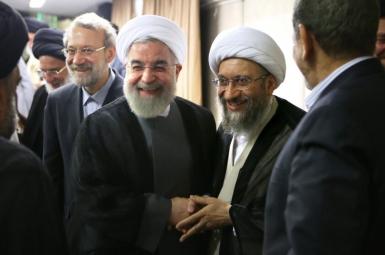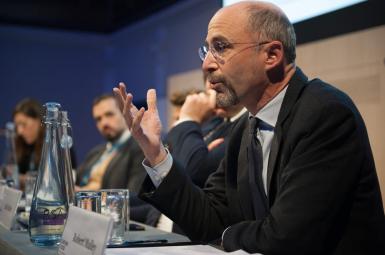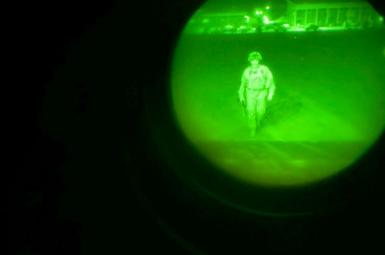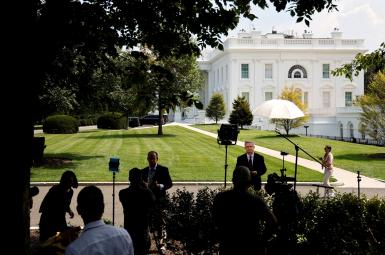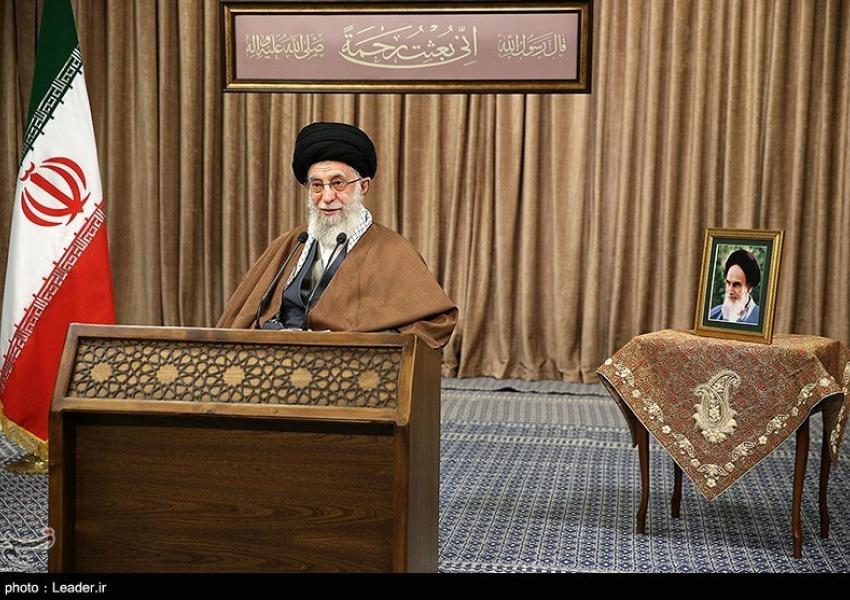
Iran’s Supreme Leader Says US Forces Should Leave Syria And Iraq
Iran’s Supreme Leader Ali Khamenei has called for the withdrawal of United States military forces from Syria and Iraq, claiming that Iran’s presence in these countries is legal and non-military.
In a speech delivered Thursday on a religious occasion, Khamenei focused on the role of Saudi Arabia in the war in Yemen, accusing Riyadh and Washington of lying about the conflict, which aid agencies have called the world’s worst humanitarian disaster. He also accused the US of defending the killing of Saudi dissident journalist Jamal Khashoggi.
Khamenei repeated the Islamic Republic’s accusations that the Islamic State group (Isis) was created by the US to justify its military presence, without offering any evidence. Khamenei said that Washington’s focus on Iran’s nuclear program contrasted with its possession of “the largest nuclear arsenal in the world” and being the only power ever to use a nuclear bomb.
The leader of the Islamic Republic warned that the most serious danger was “the enemy’s” efforts to weaken the resolve of his “pious” followers. Khamenei stressed the virtue of patience in confronting Iran’s enemy.
Increasingly, the Iranian public has become tired of the struggling economy and repeated small and large protests since 2017 show the volatile nature of the public mood. Iranians have faced three years of stagflation due to US sanctions introduced by President Donald Trump after in 2018 leaving Iran’s nuclear deal with world powers.
The Trump administration made 12 demands of Iran including ending all uranium enrichment, scrapping missile defense and breaking links with regional allies that the US or its allies Israel and Saudi Arabia oppose.
While assailing America’s role in the region, Khamenei defended Iran’s presence in Iraq, Syria and elsewhere, saying there were no Iranian fighting forces in regional countries, and that any military personnel sent elsewhere were advisory. He insisted that Iran’s presence had always been at the invitation of the legal government, contrasting with the US sending forces unilaterally.
Apart from Syria where there was no effective government for a long time, US forces in the region are currently deployed with the agreement of the national governments, such as in Iraq, Qatar, Bahrain and Saudi Arabia.
President Joe Biden’s administration, which wants to revive the nuclear deal, also has said it seeks a broader agreement with Iran to include its international role and regional security issues. Some Arab countries and Israel are drawing together to confront what they portray as an Iranian push to establish regional hegemony. They are demanding that the Biden administration maintain ‘maximum pressure’ until Iran makes fundamental policy changes.
